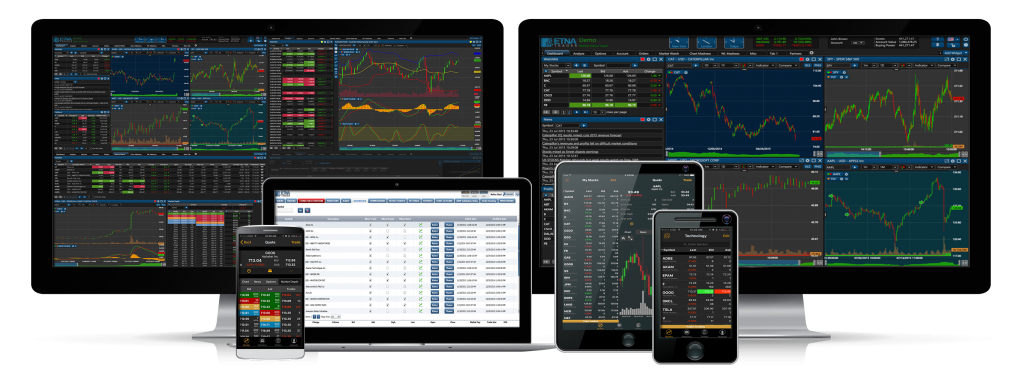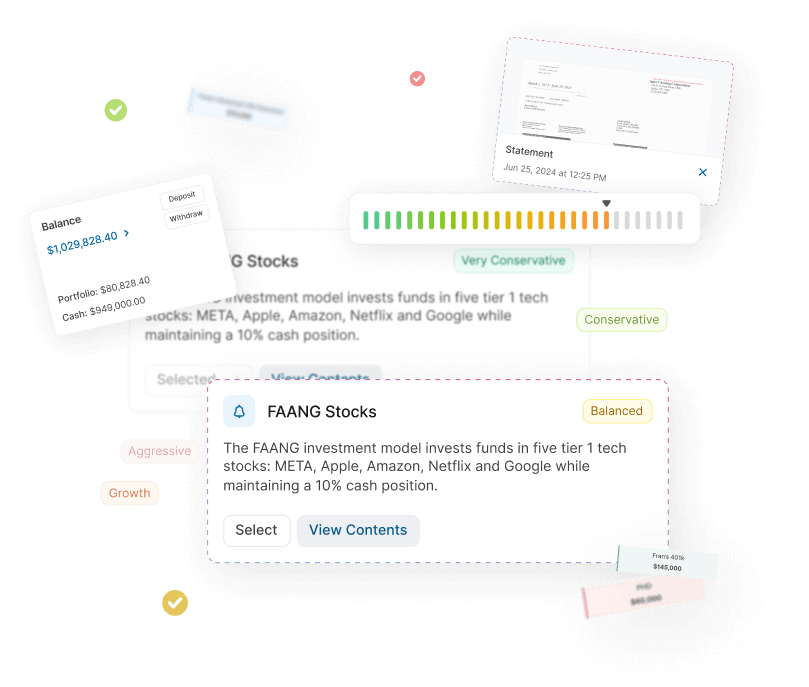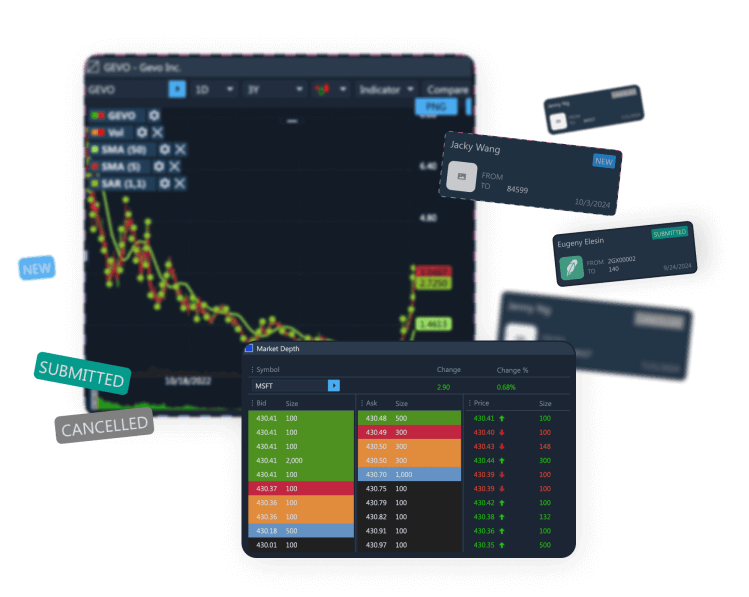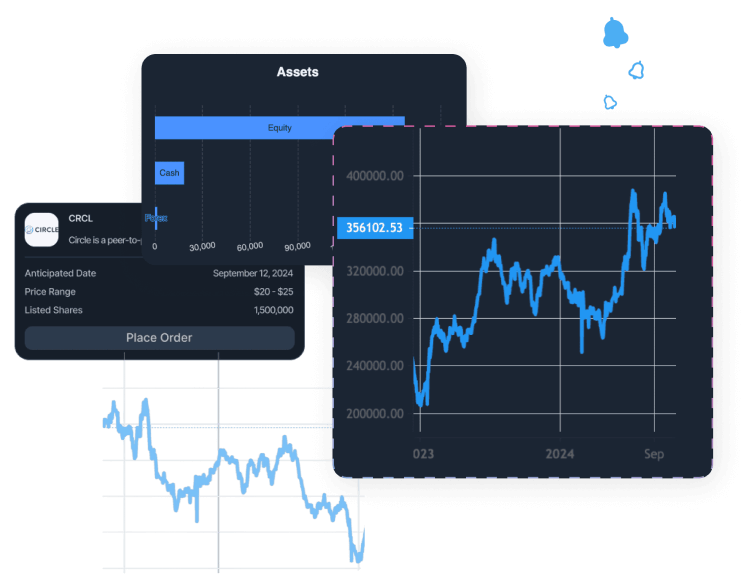
The rise of computers, smartphones, the Internet, and other technologies have greatly changed the way we live our lives. Essentially, every industry and every aspect of our lives has been impacted by these technologies, including investing. Increasingly, investors are cutting out expensive wealth managers, instead taking a “Do-it-Yourself” approach – self-directed investing, and controlling their own financial destinies.

The rise of computers, smartphones, the Internet, and other technologies have greatly changed the way we live our lives.
In the past, anyone who wanted to invest had to work with an expensive broker who would conduct trades for you on Wall Street and in other exchanges. The Internet, however, has dramatically reduced trading costs while increasing transaction speeds. This has also reduced the need for wealth managers and other professional advisors. Many investors now prefer self-directed investing because the fees are lower, and when done right, the returns are higher.
More people are in charge of their own wealth today than in years past. Consider that pensions have largely gone the way of the dinosaur. Instead, companies are setting up 401Ks and other tools that encourage people to take charge of their wealth. This means families planning for retirement can no longer count on a weekly check, but instead must look after an investment portfolio.
Self-directed investing isn’t just for soon-to-be retirees. Millennials have shown a preference for managing their own wealth. 72% of millennials describe themselves as “self-directed”. Fortunately, the digital world and the ever increasing plethora of tools at our disposal make that easier than ever before.
Millennials will soon make up the largest adult generational cohort, outnumbering even baby boomers. Some investment brokers and advisers have all but ignored millennials, but they do so at their own risk. By 2020, millennials are expected to have an aggregate net worth as high as $24 trillion.
It’s important to note, however, that investment is a profession, and every investment should be made after considerable consideration and/or using advanced tools, such as high-performing robo advisors. No, people don’t need a finance or business degree in order to invest. However, every investor should know what they are doing. Fortunately, in the digital world, opportunities abound for self-education.
A hundred years ago, if you wanted to invest in financial markets, it was best to live near Wall Street or to hire someone to represent your interests there. Failing that, you might have signed up for expensive ticker services that would wire ticker updates regarding the stocks you were vested in or considering. Then you could wire a broker on Wall Street and they’d make a purchase for you. Unsurprisingly, investing back then was limited primarily to professional investors and the wealthy.
Next on, dial-in brokers emerged and financial newspapers, like the Wall Street Journal, proliferated. Regardless, through most of the 20th century it was difficult to manage your own wealth entirely on your own. Twenty years ago, you could invest online. However, you were tethered to large desktop computers and slow Internet connections.
Now? You can simply pull out your smartphone and login to an app. This isn’t just about convenience, mind you, but also empowerment. Self-directed investing is much easier when you have constant and instant access to your portfolio. You can monitor your portfolio any time, anywhere, reacting to market developments as needed. Mobile investing apps can offer all of the bells and whistles found in desktop platforms, including automatic trading tools, such as stop/losses. You can also hunt down information, such as financial reports, quickly and easily.

Online Trading Platforms for self-directed investing
The emergence of smartphones, ubiquitous laptops, and other on-the-go technologies has empowered many people, allowing them to take charge of their portfolio. Many people who are considering self directed investing will closely consider brokers and trading platforms that offer a mobile app. In fact, many investors prioritize brokers with good mobile technologies. In 2017 the annual Barron’s Best Online Brokers Rating introduced mobile platform as a separate criterion of brokers evaluation. This year Barron’s Best Online Brokers Rating went even further emphasizing if the broker-participants offered applications for smart watches.
Indeed, among younger millennial investors, 71% report using a broker’s mobile app within the past 12 months, and 51% state that mobile capabilities are either “extremely important” or “very important.” Even among less technologically inclined boomers, 44% report having used their broker’s mobile app within the last 12 months, while 56% of Gen X’ers report the same.
Generally speaking, iPhone and Android Apps are the most widely used mobile platforms. However, boomers love their iPads, with 41% using them to log into their primary brokerage accounts. Regardless, mobile access now needs to be a priority for every brokerage that wants to stay competitive. Any brokers that lack mobile apps could be passed over for more mobile-friendly competitors.
Mobile is a must, and brokers must now focus on empowering self-directed investors with the tools and resources they need.
Minerva Lending conducted a survey that found that 72% of people trusted independent financial advisors. For said advisors, that number is certainly encouraging. Stockbrokers, however, secured trust from just 35% of respondents, while wealth managers were trusted by only 46%. Personal contacts actually enjoy higher trust at 60%.
People trust themselves, however, more than anyone else. A full 77% of people reported that they trust their own judgment when it comes to making investment decisions. This shouldn’t come as too much of a surprise. Self-directed investing allows for maximum control, and investors can be 100% certain that their advisors -in this case themselves- have no ulterior motives.
These preferences help explain why self-directed investing continues to gain steam. At the same time, technology has also made it easier for people to go with their instincts and brains, and to manage over their own portfolio. Modern-day brokers make it easy for self-directed investors to build investment portfolios that are diversified in regards to assets and risk profiles. As a result, self-directed investors can build their own complete portfolio. Add here the newly emerged commission free broker-dealers, and the choice is pretty clear.
A convergence of technological developments, changing personal preferences, and employee benefits, among other factors, are encouraging self-directed investing. With these pressures only increasing, self-directed investing will likely become more popular and more common in the future.
“Self-directed” does not imply a lack of professional consultation. Trustworthy financial advisors, thought-leaders, and software tools, such as digital advisors, should continue to enjoy the trust of investors. However, when it comes to calling the shots, many investors, armed with roughly the same amount of information and empowered with many of the same abilities as wealth managers, now want the final say.
ETNA offers a white label trading applications for small to midsize retail broker-dealers and FinTech firms. Our clients mostly focus on self-directed investing. Contact us today to learn about innovative tools for self-directed investing and how they can help your brokerage business to stay competitive in a digital world.

Demo Financial Advisor Software
Manage portfolios with advanced rebalancing and real-time insights.
Access customizable client reports and streamlined compliance tools.
Designed for advisors seeking efficient client and portfolio management.


Demo Advanced Trading Platform
Test multi-asset strategies with real-time and historical data.
Analyze market depth, execute complex options, and algorithmic orders.
Ideal for refining strategies and risk management before live trading.


Demo Paper Trading Platform
Practice trading with virtual funds in real market conditions.
Simulate cash, margin, and day-trader accounts to gain experience.
Perfect for honing skills in a risk-free, customizable environment.

